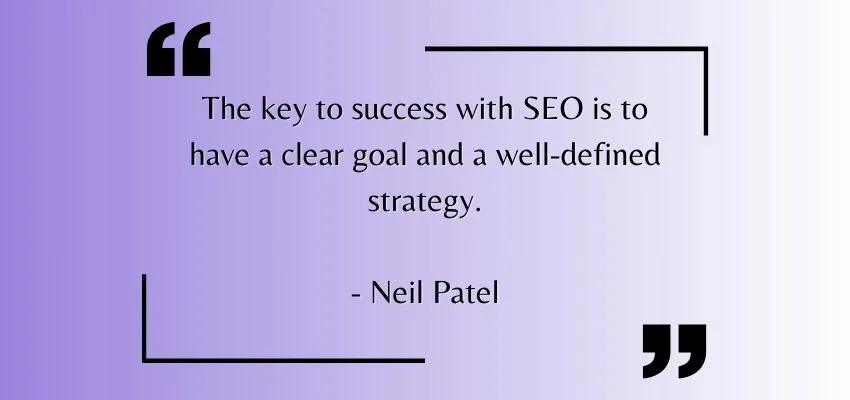Solicitors
How Solicitors Can Use SEO to Boost Online Visibility
For solicitors, being easy to find online can make a huge difference to your business. Clients searching for legal help often turn to Google to find answers, whether it’s for family law, conveyancy or employment disputes. This is where Search Engine Optimisation (SEO) comes in. When done right SEO will help you rank higher, attract the right audience and convert website visitors into paying clients.
If you’re wondering how to approach SEO for your firm, this guide will walk you through all the essentials such as; where to focus your efforts, how to build meaningful links and which topics can make your website stand out.

Getting Started: Setting the Foundation
Before diving into keywords and backlinks, your website should have a solid foundation. A well optimised site doesn’t just cater to search engines alone; it ensures a smooth and engaging experience for users, which will ultimately keep them on your site and encourage them to get in touch. Below you will find three critical areas to address before moving forward with advanced SEO strategies:
1. Is My Website Mobile Friendly?
More than half of all web traffic now comes from mobile devices. When someone urgently needs a solicitor they’re likely searching from their phone, perhaps during a lunch break or in a moment of crisis. A mobile friendly website ensures these users can easily navigate your pages, read your content and contact you without frustration.
Google also uses mobile first indexing, which means it evaluates the mobile version of your website when deciding how to rank it. If your site doesn’t work seamlessly on smaller screens your rankings could suffer and you might miss out on a significant amount of potential clients.
Quick Tips for Mobile Optimisation:
- Use a responsive design that adjusts to any screen size.
- Ensure buttons, links, and contact forms are easy to click without zooming in.
- Avoid pop ups that cover the entire screen, as these can frustrate users.
2. Does My Website Load Quickly?
Speed is essential and not just for user experience but also for SEO. Research shows that if your website takes longer than three seconds to load, over half of your visitors may leave before seeing your content. For potential clients, this could mean clicking on a competitor’s site instead.
Page speed is also a ranking factor for Google. A slow loading site signals inefficiency, which could harm your SEO and deter users from using your site.
How to Improve Page Speed:
- Compress large images without losing quality.
- Minimise the use of heavy scripts or unnecessary plugins.
- Use a reliable hosting provider with fast servers.
- Enable browser caching and optimise your site’s code for efficiency.
3. Is My Content Clear and Helpful?
Your website’s content should reflect your expertise while being accessible to your audience. Potential clients are often unfamiliar with legal terms, so avoid overloading your pages with complex jargon. Instead, focus on explaining concepts in a way that builds trust and confidence.
For example, a page about family law shouldn’t just list your services. Instead it could explain what clients can expect during the legal process, how you approach cases and the outcomes they might achieve by working with you. This makes your site both informative and approachable.
Tips for Clear Content:
- Write in a conversational tone that mirrors how you’d explain things in person.
- Use headings, bullet points, and short paragraphs to break up dense information.
- Include a FAQ section for common client concerns.
- Always provide clear next steps, such as booking a consultation or calling your office.
Why These Basics Matter
Before you can attract traffic or build rankings your website must be user friendly, fast and accessible. Think of it as laying the groundwork for a house: without a strong foundation, anything you build on top will be unstable. Address these areas first and you’ll set your site up for success when implementing further SEO strategies.
If you’re unsure how to evaluate your site, tools like Google PageSpeed Insights or mobile friendliness tests can help you identify problem areas to fix. Making these adjustments early on will pay off in better rankings, more traffic and higher client conversion rates.

Keyword Strategy: Understanding What Clients Search For
Effective SEO starts with understanding your audience. What are your potential clients looking for when they search on Google? By aligning your content with their search intent, you can ensure your website appears to the right people at the right time.
Let’s break this down into actionable steps:
1. Target Specific Legal Services
Potential clients often begin their search with a specific problem in mind. For example, someone going through a divorce might search for “divorce solicitor” or “child custody lawyer.” Similarly, a business owner facing legal issues might look up “commercial property solicitor” or “employment law specialist.”
How to Use Service Based Keywords:
- Create individual service pages for each area of law you cover (e.g., “Family Law Services,” “Wills and Probate Solicitors”).
- Include keywords naturally in headings, subheadings, and throughout your content.
- Add examples or case studies to show your expertise in that specific area.
2. Leverage Local Searches
For most solicitors the majority of clients will come from your local area. Searches often include location based phrases, such as “conveyancing solicitor in Leeds” or “Employment lawyer near Nottingham.” Optimising for local SEO helps you rank higher for these queries and ensures you’re visible to those nearby.
Steps to Optimise for Local Keywords:
- Include your location in key places, such as your homepage, service pages, and metadata.
- Add location specific keywords (e.g., “divorce solicitor in Cardiff”) to your content.
- Set up and optimise your Google My Business profile to appear in local map results.
- Use schema markup to specify your location and service area for search engines.
3. Address Client Questions and Concerns
Many users don’t start their search with “hire a solicitor.” Instead, they may begin by seeking answers to pressing questions. For example:
- “How much does a solicitor cost for conveyancy?”
- “What happens if I’m unfairly dismissed?”
- “How to file for divorce in the UK?”
By providing helpful, detailed answers to these queries, you can attract potential clients early in their decision making process. These questions often represent low competition and high conversion keywords because they address specific user concerns.
Where to Incorporate These Keywords:
- Write blog posts or FAQ pages focused on these queries.
- Use the keywords in titles, meta descriptions, and image alt tags.
- Link from these informative pages to your main service pages, guiding users toward a consultation.
4. Use the Right Tools to Find Keywords
Guessing what your clients search for might not yield the best results. Tools like Google’s Keyword Planner, AnswerThePublic, and SEMRush can provide data on search volumes, trends, and related terms.
How to Use These Tools:
- Look for terms with high search volume but low competition.
- Group related keywords into clusters (e.g., “divorce solicitor,” “child custody lawyer,” and “family law services”).
- Identify long tail keyword phrases with three or more words like “affordable employment lawyer in Birmingham.” These tend to convert better because they reflect specific intent.
5. Write Naturally But Strategically
Once you’ve identified the right keywords, it’s important to use them in a way that feels organic. Search engines penalise “keyword stuffing,” which makes content sound unnatural and spammy. Instead, weave your keywords into engaging, client focused copy.
Best Practices for Keyword Integration:
- Focus on readability: If it feels forced, rephrase it.
- Use synonyms and variations to make the text flow naturally (e.g., “lawyer,” “solicitor,” “legal expert”).
- Include keywords in strategic locations like headings, meta descriptions, and image alt tags.
6. Monitor and Adjust Your Strategy
SEO isn’t a one and done task. Regularly check which keywords are performing well and which aren’t. Use tools like Google Analytics and Search Console to monitor traffic and rankings. You might find that certain topics resonate more with your audience, allowing you to double down on what works.
By understanding what your clients search for and tailoring your content accordingly, you’ll not only improve your search rankings but also attract the right type of traffic for people who are actively looking for the legal services you provide.

Topics That Drive Rankings: What Solicitors Should Write About
Creating valuable, engaging content is a cornerstone of SEO for solicitors. It allows you to connect with potential clients, demonstrate expertise, and build trust all while signalling to search engines that your site deserves to rank highly. A well maintained blog or resource section is one of the most effective tools for this. Here’s how to choose the right topics and structure your content to maximise impact.
1. Explaining Common Legal Processes
Legal processes can feel daunting for those unfamiliar with them. By breaking these down into clear, step by step guides, you’ll position your website as a go to resource for potential clients seeking clarity.
Examples of Topics:
- How to Make a Will: Explain why a will is important, the legal requirements in the UK, and how solicitors can help avoid any pitfalls.
- Steps to Buying a House: Cover the conveyancing process, potential delays and how a solicitor protects buyers’ interests.
- What Happens During a Tribunal: Provide an overview of preparation, the hearing process, and potential outcomes.
Tips for Writing These Guides:
- Use plain English, avoiding overly technical language or legal jargon.
- Include a timeline or checklist to make the process more digestible.
- Add links to related services, encouraging readers to contact you for further assistance.
2. Answering FAQs
Many people turn to Google with specific legal questions before deciding to consult a solicitor. By answering these queries on your site, you can attract traffic and build trust with readers who might later become clients.
Examples of FAQs to Address:
- “How long does probate take in the UK?”
- “What are my rights if I’m unfairly dismissed?”
- “Do I need a solicitor to transfer property ownership?”
How to Structure FAQs:
- Dedicate a standalone FAQ page or include answers in relevant service pages and blogs.
- Be concise but thorough, addressing the most common concerns.
- Use schema markup to create rich results in Google search, making your FAQs more prominent.
3. Reporting Industry News and Updates
The legal landscape evolves constantly with changes in legislation, landmark cases or new regulations impacting both individuals and businesses. Writing about these developments shows you’re knowledgeable and up to date, reassuring potential clients that your advice is current.
Examples of Newsworthy Topics:
- Changes to UK employment law, such as updates to redundancy or parental leave policies.
- New inheritance tax regulations and how they might affect estate planning.
- High profile legal cases and what they mean for individuals or businesses in your area of expertise.
Best Practices for Legal News Content:
- Explain how the changes could impact clients, using practical examples.
- Avoid legal jargon and translate complex updates into easy to understand insights.
- End with a clear call to action, such as encouraging readers to contact you for tailored advice.
4. Sharing Case Studies and Success Stories
While staying within the bounds of client confidentiality, sharing anonymised case studies can provide real world examples of how your services have helped others. This type of content resonates with potential clients by showing tangible results.
What to Include in a Case Study:
- The client’s initial challenge or legal issue.
- The steps you took to address the problem.
- The positive outcome achieved through your expertise.
This not only demonstrates your skill but also personalises your services, making your firm more relatable.
5. Providing Tools and Resources
In addition to blogs and articles, consider offering downloadable guides, templates, or calculators. These resources can attract users to your site and keep them engaged.
Examples of Resources:
- A downloadable checklist for starting divorce proceedings.
- A free stamp duty calculator for property buyers.
- A guide to understanding redundancy rights.
Such tools provide immediate value to potential clients and encourage them to explore your services further.
How This Content Boosts SEO
By creating content that answers client questions, simplifies legal processes, and demonstrates your expertise, you achieve two goals:
- Engaging Users: Valuable content keeps visitors on your site longer, increasing the likelihood they’ll contact you.
- Signalling Authority to Search Engines: Google rewards sites that provide high quality, relevant information by ranking them higher in search results.
By focusing on these topics, you can build trust with your audience, increase website traffic, and ultimately convert more visitors into clients.

Building Links That Matter: A Guide for Solicitors
Link building is a critical part of SEO, but it’s not just about the number of links pointing to your site, it’s about their quality and relevance. For solicitors, who operate in a competitive and professional field, establishing credibility with high quality backlinks can significantly improve search rankings and build trust with potential clients. Here’s how to do it effectively:
1. Leverage Local Directories
Local directories are often overlooked but they can provide valuable, authoritative links to your website. They not only help boost SEO but also make your firm more visible to potential clients searching for solicitors in their area.
Where to List Your Firm:
- The Law Society Directory: A must have listing for any solicitor practising in the UK.
- Yell.com: A popular directory that’s highly trusted by search engines.
- Local Business Directories: Look for respected directories specific to your city or region. Examples might include “Manchester Business Directory” or “Edinburgh Trusted Services.”
- Chamber of Commerce Websites: Many local chambers offer business listings that include a link to your site.
Tips for Success:
- Ensure your contact information is consistent across all directories (this is critical for local SEO).
- Use a well written description that highlights your areas of expertise.
- Add a link to your Google My Business page if allowed.
2. Build Strategic Partnerships
Collaborating with other local or industry specific businesses is an excellent way to gain relevant backlinks while fostering relationships that could lead to client referrals.
Potential Partners for Solicitors:
- Estate Agents: Create content or resources together, such as guides to buying property, and include reciprocal links.
- Accountants: Share resources about tax law, probate, or financial planning.
- Financial Advisors: Collaborate on topics like estate planning or business succession strategies.
How to Approach Partnerships:
- Offer value first: Suggest sharing resources, co hosting events, or contributing guest articles to their websites.
- Keep the links relevant: Ensure the content you’re linking to (and from) is directly related to your legal services.
3. Write Guest Blogs
Guest blogging allows you to showcase your expertise while earning high quality backlinks from respected websites.
Where to Publish Guest Blogs:
- Legal Industry Blogs: Many legal websites welcome guest contributions on niche topics.
- Local News Websites: Write about community specific legal issues, such as landlord v tenant disputes or employment law changes affecting local businesses.
- Complementary Business Blogs: Offer insights on legal matters related to their industry. For example, a piece on “What Property Buyers Should Know About Conveyancing” for an estate agent’s blog.
Guest Blogging Tips:
- Focus on creating high quality, original content that solves a problem or answers a question.
- Include a relevant link back to your website, ideally to a specific service page or blog post.
- Avoid overly promotional language within guest blogs as this type of backlinking should be to educate, not sell.
4. Collect and Share Client Testimonials
Client testimonials are a powerful way to enhance your reputation online while supporting your link building efforts.
How Testimonials Help SEO:
- When clients leave reviews on platforms like Google My Business, Yelp, or Trustpilot, they often include your website link, boosting its authority.
- Positive reviews improve your local search rankings, especially for location based queries like “solicitor near me.”
How to Encourage Reviews:
- After completing a case, ask satisfied clients to leave a review on your Google My Business page.
- Make the process simple by sending clients a direct link to the review page.
- Respond to reviews whether positive or negative to show you value client feedback.
5. Avoid Low Quality or Irrelevant Links
Not all links are created equal, and some can even harm your SEO. Google penalises websites that engage in manipulative link building practices, such as buying backlinks or participating in link schemes.
What to Avoid:
- Links from spammy or irrelevant websites. For example, a solicitor site linked from a gaming blog will raise red flags.
- Paid links: While tempting, these often violate Google’s guidelines.
- Excessive reciprocal linking: Swapping too many links with unrelated businesses can appear manipulative.
Focus on Quality:
- A single link from a trusted source (e.g., a government site, educational institution, or prominent news outlet) carries far more weight than dozens of links from low quality sites.
Why Quality Matters More Than Quantity
Search engines like Google use backlinks to evaluate your site’s credibility and relevance. A few links from high authority, trustworthy sources will improve your rankings far more effectively than a large number of irrelevant or low quality links.
Getting Started with Link Building
- Audit Your Current Links: Use tools like Ahrefs or SEMrush to identify which sites are already linking to yours. Remove any harmful links.
- Create Link Worthy Content: Focus on writing in depth guides, legal updates, and resources that others naturally want to share.
- Reach Out Strategically: Approach local businesses, directories, and industry blogs with personalised pitches for collaboration.
By focusing on high quality links from relevant sources, you’ll strengthen your online presence, improve your rankings, and attract more clients to your firm.

What to Focus on for Lasting Results?
1. Prioritising Local SEO
For solicitors, location is everything. Most clients search for services nearby, often using terms like “family lawyer near Birmingham” or “conveyancing solicitor in Leeds.” To ensure you’re visible in local search results, optimising for local SEO is essential.
Steps to Strengthen Local SEO:
- Google My Business Profile:
- Claim and verify your profile.
- Ensure your name, address, and phone number (NAP) are accurate and match the details on your website.
- Add high quality photos of your office, team, and branding to build trust.
- Encourage satisfied clients to leave reviews, and respond to them promptly, this boosts both your reputation and your rankings.
- Location Based Keywords:
- Integrate terms like “[your service] in [your location]” throughout your site, especially in page titles, meta descriptions, and headings.
- Write content tailored to your area, such as “How Employment Laws Affect Businesses in Manchester.”
- Local Backlinks:
- Get listed on local directories, chambers of commerce, and industry specific sites.
- Collaborate with local businesses for content or events to earn organic links.
2. Enhancing User Experience (UX)
Your website isn’t just for search engines, it’s for people. A positive user experience ensures visitors stay longer, engage with your content, and are more likely to convert into clients.
Key Elements of a Strong UX:
- Clear Navigation:
- Organise your site so visitors can easily find information about your services, team, and contact details.
- Use a logical menu structure and include an easy to find search bar.
- Prominent Contact Information:
- Display your phone number, email, and address on every page, preferably in the header or footer.
- Ensure your contact forms are short and straightforward, requesting only essential details.
- Call to Action Buttons:
- Use action driven buttons like “Book a Free Consultation” or “Speak to a Solicitor Today.”
- Place these prominently on every key page, including service pages and blogs.
- Mobile Optimisation:
- Ensure your site is fully responsive, adapting seamlessly to smartphones and tablets.
- Test your site’s usability on mobile devices regularly, focusing on fast load times and clickable elements.
Why UX Matters:
Google considers user behaviour, like time spent on your site and bounce rates, when ranking pages. A well designed site not only improves client satisfaction but also boosts your SEO.
3. Tracking and Adapting Your Strategy
SEO isn’t static. To achieve lasting results, you need to monitor performance and adjust your strategy based on what works.
Tools to Use:
- Google Analytics:
- Track visitor behaviour, such as which pages are most popular and how users found your site.
- Monitor your bounce rate and identify pages where visitors drop off.
- Assess conversion rates for key actions like form submissions or clicks on call to action buttons.
- Google Search Console:
- Check which keywords are driving traffic to your site.
- Identify technical issues, such as crawl errors or slow loading pages.
- Heatmaps and User Feedback:
- Use tools like Hotjar to see where users click and scroll, helping you refine your site layout.
- Ask clients for feedback on your website experience and adjust based on their suggestions.
Adapting Your Strategy:
- If certain blog posts or service pages drive significant traffic, expand on these topics to deepen engagement.
- If a page has a high bounce rate, revisit its design, content, or load speed.
- Regularly update your site to reflect changes in legislation, services, or client needs.
The Long Term Payoff
By focusing on these three areas, you’ll create a solid foundation for sustainable SEO success. Local SEO ensures you’re visible to nearby clients, UX keeps them engaged, and consistent tracking allows you to refine your efforts for maximum impact.
SEO isn’t just about rankings, it’s about building a digital presence that attracts, informs, and converts potential clients. By prioritising these lasting strategies, your firm will remain competitive and visible in the ever changing online landscape.



